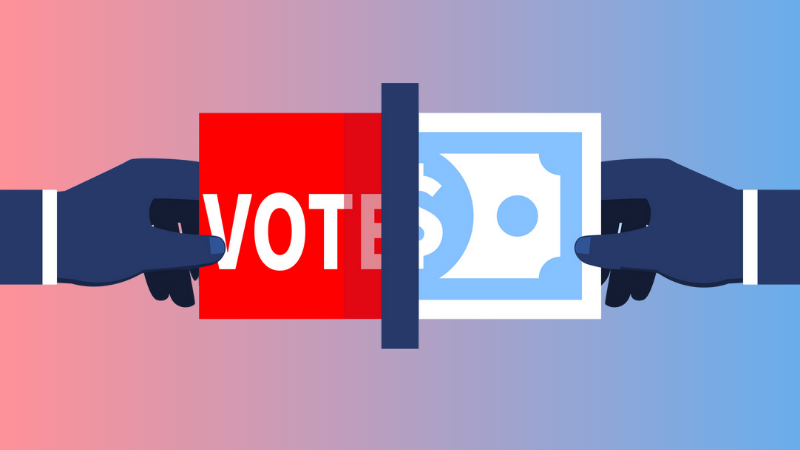Money Isn't Everything In Politics

Key Takeaways
- Sometimes you might need to spend money to make money.
- More isn’t necessarily better.
- Campaign research shows some of the limits of spending and advertising and the pitfalls of bad money management.
Marble Freedom Trust, a conservative dark money political operation, recently made headlines when it received $1.6 billion from a single donor, making it the largest single donation in American political history. This move continues a trend that accelerated with the Supreme Court’s citizens United decision, which opened the floodgates for SuperPacs and dark money groups. Combined with massive online fundraising campaigns for candidates and parties at every level, there is more money in American politics today than ever before, raising massive concerns about corruption and election-buying.
But the research on campaign spending points to the limits of the power of money. Indeed, Jacobson (1984) first observed that incumbent spending in Congressional campaigns did not equate to success. In fact, his research on Congressional campaigns showed that some incumbents running for re-election saw a decline in their share of the vote as their spending increased. The more money they spent, the more votes they lost!
Of course, campaign spending does not drive voters away. What we observe in campaigns is an effect of the endogeneity problem. Campaign spending is not random. Candidates in safe seats are virtually guaranteed re-election. Candidates spend more money when they are facing a stronger challenger. Candidates are less likely to win votes when they are facing a stronger challenger. Therefore, we see a correlation between spending and declining vote share.
The private sector analogue would be a product that dominates the marketplace. Advertising is helpful to businesses when consumers have choices and products are in competition. If you have a strong rival competing for business, you may spend more on advertising, but still lose market-share because you have a strong rival. If you have a virtual monopoly, you probably won’t advertise much because you don’t have to.
Even in competitive political races, money is not dispositive. Bonneau and Cain (2011) examined the effect of campaign spending in non-partisan judicial campaigns. They found that campaign dollars have a marginal effect and the power of campaign spending declines dramatically as spending increases. Once a candidate achieves widespread name recognition, spending additional money and running additional ads does little to gain additional votes.
This marginal effect explains why, despite the millions of dollars spent in high-profile elections like presidential campaigns, researchers often find it difficult to see any measurable campaign effects. Once the candidates are known to voters, and particularly when candidates are already receiving media coverage, voter preferences become fixed.
And yet, we are bombarded with advertisements and calls for campaign donations despite questions about how much good that money will actually do. Indeed, Republicans are asking those questions of Senator Rick Scott (R-FL), the chair of the National Republican Senatorial Committee (NRSC). The NRSC aggressively raised over $181 million in the last year, but now finds itself curiously short of cash. Worse, Mr. Scott’s heavy investments in digital advertising and data mining do not appear to have yielded much benefit to actual Republican senate candidates.
For voters, the research on campaign finance may be oddly reassuring. Candidates and moneyed interests may be raising and spending more money, but the money pouring into electoral politics seems to have little impact on elections themselves. It is difficult to buy an election in modern U.S. politics.
There is a further lesson for leaders in all fields: a big checkbook is handy, but there are limits on what money can accomplish. Throwing more money at a problem is not helpful unless you have a clear idea of what that money is for and what effect those actions will have. Additional investment or advertising, at a certain point, does not make much sense. How is this advertising or investment getting you closer to your goal? Why do you expect this ad to have this kind of effect?
Do you really need to spend this money to make money?